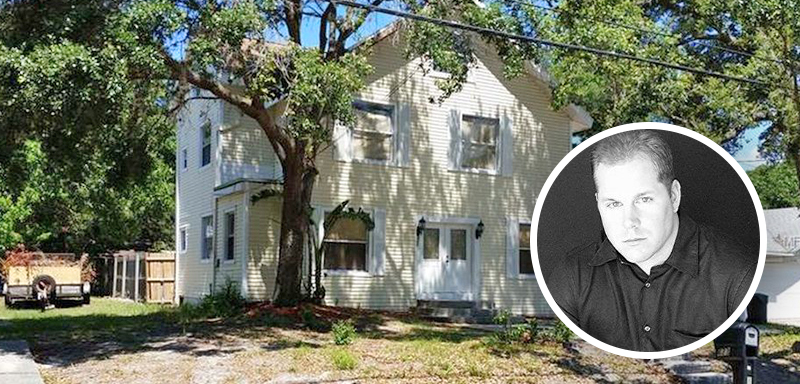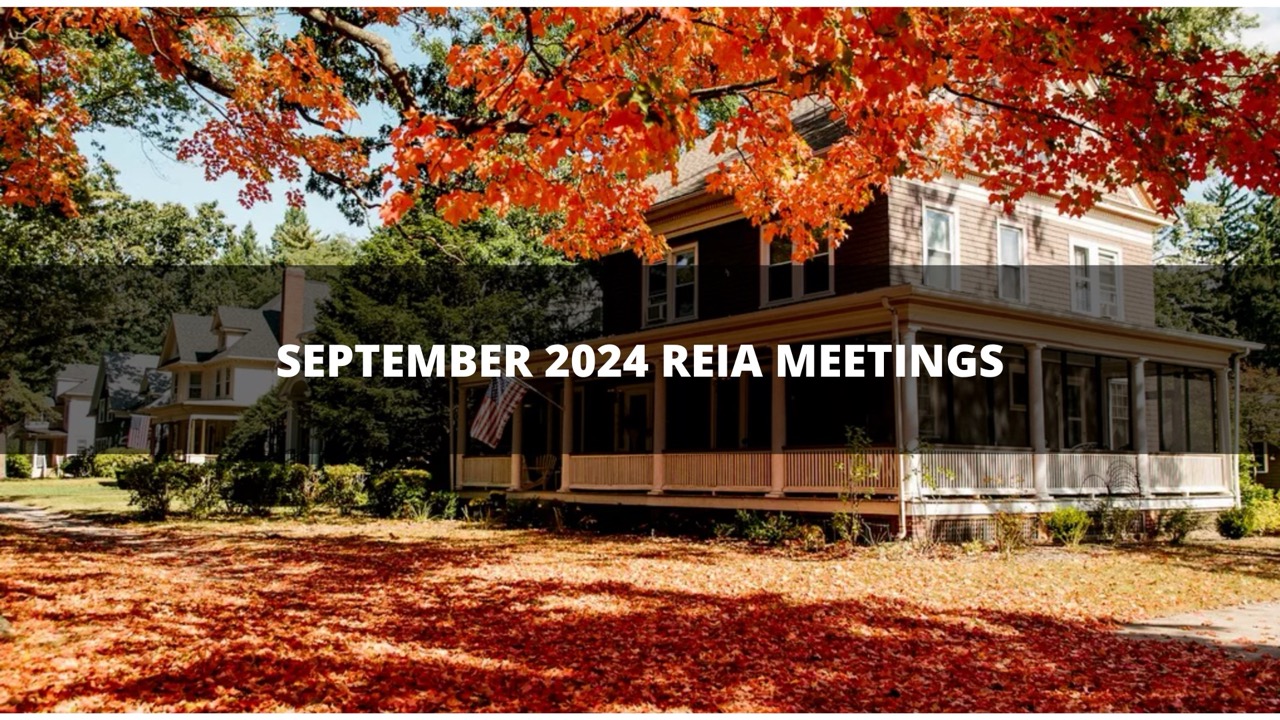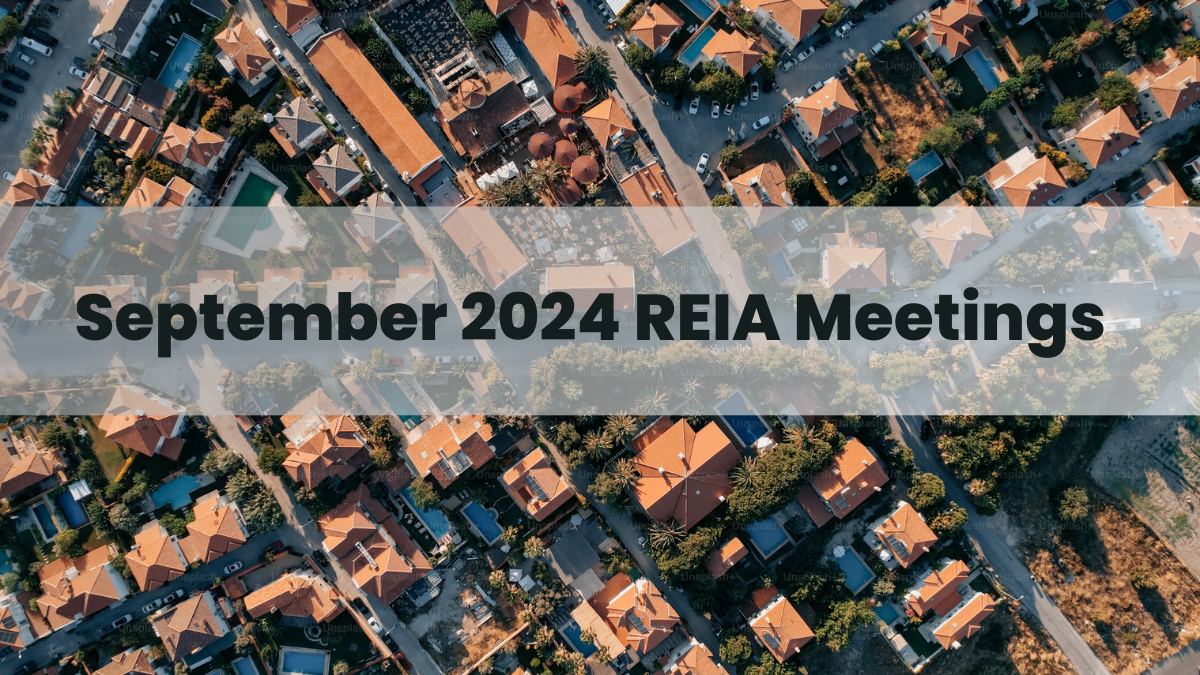How Many Deals Do You Need to do Quit Your Job? [Reverse Engineer Your Freedom]
Phil’s success in real estate investing can be summed up in two words… Reverse engineering.
The secret to his success is working backwards. It’s not always the conventional way of thinking, but it works. Phil starts with the end goal in mind. Then he takes steps backwards until he knows exactly what the first step is.
For example, if you want to make $100,000 in a year from real estate investing he uses a formulaic set of questions to figure out exactly what he needs to be doing on a daily basis to reach the $100,000 goal. This big goal can be overwhelming, but when you start to reverse engineer it, the big becomes more bite size and realistic.
Phil knows first-hand how nerve-wrecking it can be to jump into real estate investing full-time. He suggests you figure out your freedom number. Your freedom number is the amount of money you would need to live (pay bills, enjoy activities/entertainment, etc.) for a year.
Once you have your freedom number saved in the bank, you are ready to jump in full-time. It is just the cushion (and confidence) you need to start investing. If 6 months goes by and you don’t do a deal, you are still financially okay.
Speaking of confidence… Phil knows when new investors start doing deals, there can be a lack of confidence while talking to sellers on the phone and negotiating on deals.
And that is not something you can learn from an online course or a book…
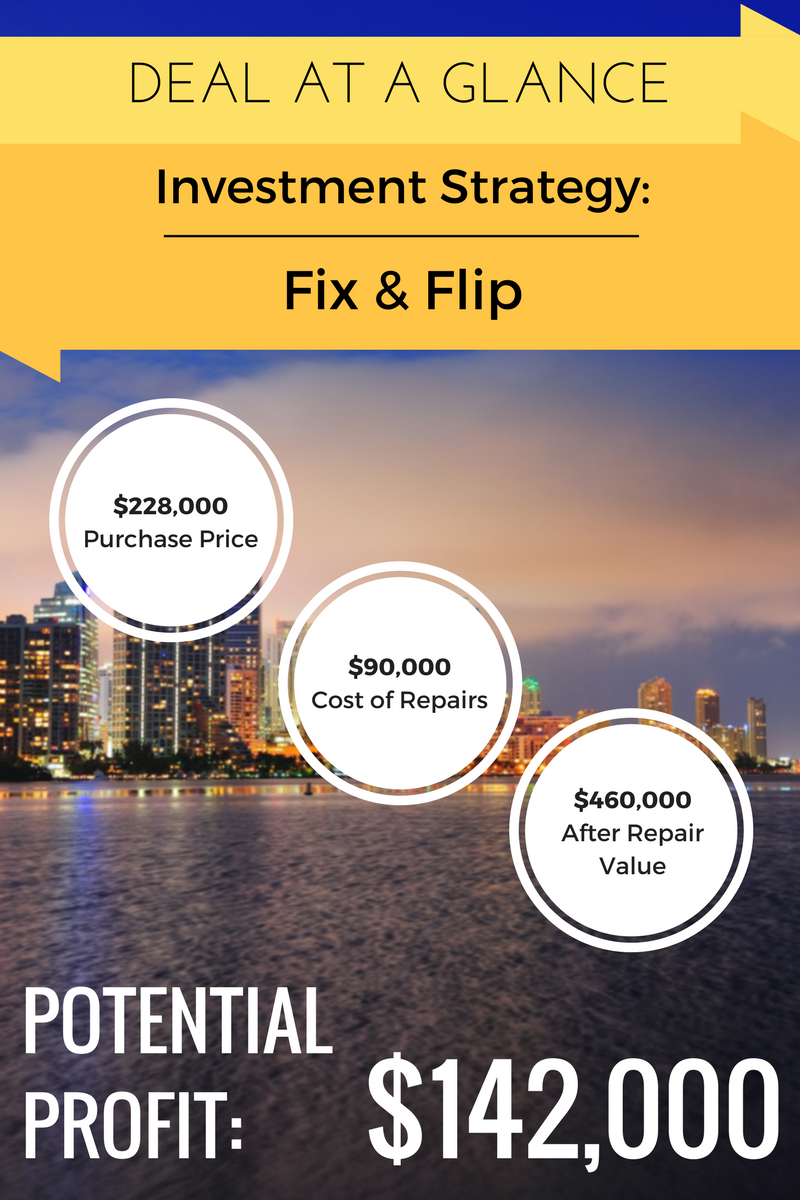
Listen to our conversation with Phil to learn how to boost your confidence as a new investor, how Phil got started as a wholesaler and his future investing plans, plus…
MyHouseDeals.com Success Stories
- How to overcome analysis paralysis
- The formula you need to transition to full-time investing
- Why you should always have a memorandum of agreement
NOTE: Since Phil is a Premium Elite member, he received a FULL refund of his up-front membership fee for simply doing a deal! Find out more about our Premium Elite Membership here.

Tell Me About Yourself…
How did you get into real estate investing?
I always had a knack for numbers and the way things work. I started off in the IT field believe it or not. IT in my younger years seemed to be nothing but problem solving. So I just worked my way up through the ranks and I started to help out kids in computer labs. Going from there, it grew into designing enterprise level MPLS architecture for Fortune 500 companies.
I look at real estate the same way depending on the investment strategy. It is always going to be a problem to solve and an obstacle to overcome. It will always be a hurdle to go over, under, around, or just blow right through it like the military. The two fields pair up perfectly with my personality and the way my brain works. Real estate just took off and I haven’t looked back.
Was there something in your life that motivated you to start real estate investing?
Yes. I like to reverse engineer things. What I do is look at the end result and I pictured myself saying, “You know if I had a slew of properties and if I had a variety of different families living in them, that would be a joy of investing in real estate.”
Real estate allows me to leave a legacy for my family and kids and so forth. And the joy of being able to help other people speaks for itself.
I could also allow people to take a percentage of my portfolio and let them live in the home rent free. Some of these folks lost their home in a fire or something beyond their control happened to them and they had no other means. Rather than turning them out on the street, I would have the ability to put them in one of my properties. Then I can allow them that same sanctuary.
I have been very blessed before. Now I just felt like it would be my turn to give back. I saw that end vision and picture of what that would look like, then I reverse engineered it all the way back until I knew the steps and the actions that I had to take back then to make it all happen today.
What was your first step in real estate investing?
I used to have a background in sales. In fact, I was put in charge of the mortgage and finance division at a mortgage company. What I did was train the reps and do seminars and lectures in front of 5000 people and show them how money works and how lending originations work for people who want to buy a home. At this point, I got involved with a real estate firm in Colorado that had amassed about 185 properties in their portfolio and they were looking for an exit. This was back in 2006 or 2007.
They wanted me to help them out with an exit strategy due to my background with numbers and loans. They also wanted the tenants to cash out the investor and get their own mortgage. Basically, take the title and cash out of the investor and walk away having liquidated the property. I was brought in as assistance to liquidate the portfolio and that was my first step to getting exposed into the full matrix of how investments work from start to finish, from contract to close, and all the nuances of property management and creative acquisitions that go with it. I also learned how to deal with the flow of money coming in and out. This was my first real exposure to it.
Since you came from a different industry, what were your top sources of real estate investing education?
When I decided to really learn about real estate investing, I decided to surround myself with other people who were like minded and who could challenge me. I was looking for people to mentor me.
There are a lot of different books, articles, and courses on this topic. You’re up at two o’clock in the morning and you see this familiar guy on TV talking about buying property with no money down. Of course at the time I bought one of those course packages and that was an eye opener.
I surrounded myself with material and individuals who I could learn from. I learned their habits, rituals, the day-to-day processes that they go through, and the kinds of teams they build. Really, I was just being a sponge and soaking up as much of it as I could by way of exposure, self study, and education. This is what I initially did to kick start my career and now I am a full time investor.
How did you transition from your past job to being a full-time investor?
I was taught various different approaches of how to come up with what is called your “freedom number.” Freedom is if you have “x” amount of expenses that are owed to support your lifestyle, bills, entertainment, trips you take, and so forth…this is the money you need to operate on a daily basis.
Whatever that number is, you want to amass the amount of money that would cover a 12 month period and tuck it away in the bank. If you didn’t do a single real estate deal between now and 12 months from now, all your expenses will be taken care of since the money you need is just sitting in a lump sum in a bank account that you have been building on when still working another job.
Once that was set up, it was just a matter of getting started. It gave me comfort knowing that I had a year’s worth of expenses stashed away if I didn’t get deals immediately.
I now had 2,080 working hours for myself instead of giving it to an employer. My productivity just skyrocketed. It was a matter of having that cushion first and having that security knowing that if I fail at real estate in the first six or seven months, the expenses will be paid for at least. If I have to get back to the nine to five grind, I would still have three or four months of cushion left just in case I want to give it another shot. It could even be emergency money.
Tell Me About Your Investing Strategy…
What is your primary investing strategy?
Believe it or not, I have been asked to start a coaching or mentoring program. My company is known to solve problems by way of creative acquisitions. People come to us all the time saying, “Hey, we’re stuck. I don’t know what to do with this deal and I think there’s a deal and money to be made but we don’t really know how to acquire it or how to exit.” The strategy we use is portfolio acquisitions. At the moment, we are looking to buy 50 to 100 homes by Q4.
We also include rehabs in this, which we do nationwide. My company does not do a lot of wholesaling and we’re not doing a lot of lease options. In fact, we do very few subject to financing. However, creative acquisitions and cash grab properties by way of contract work are deals that we can do. We also do title work and take properties down for a full blow rehab to either exit the traditional MLS buyer or exit to one of the hedge funds that buy properties from us. Those are the two primary strategies that we have used in 2017 so far.
When you first started real estate investing, how did you finance your very first investment property?
My first deal was a wholesale deal. There is a really neat story behind it. I think a lot of investors could probably learn from a couple of the methods that I implemented. So as I said, it was a wholesale deal in my local market. After doing a lot of the studying and prep I said, “Okay, now is my shot to go out there and take down one of these wholesale deals.” It initially started with the various type of online and offline marketing, bandit signs, mailers, and so forth.
Lo and behold! The calls came in and I remember the lady who called and said she was a landlord and her tenants trashed the place. She wanted to get out. She gave me an address and I looked it up. Based on my training and education, I knew what I had to do in terms of comping the property and getting an evaluation. I went out there to see her in person.
While walking through the property, I had so many questions swirling around in my head. I was thinking, “Am I doing this the right way? Am I missing something?” I even had a contract in my hand, but I had to maintain that poise and confidence. I made sure to give off the vibe that I knew what I was doing. However, despite all that, every new investor feels the nervousness and excitement of being in the moment of eventually taking down a property.
After walking through the property, I made my offer. She laughed at me and told me that I wasn’t even close. She had offers that were seven or eight thousand dollars higher that she had been getting all week long. I signed my offer in front of her and handed her the contract. I told her, “Why don’t you give me a call at the end of the week and we can touch base then to see if your other offers come through.” That was it. We shook hands and parted ways.
A week later I get a phone call from her and she says, “Is you offer still good?” I say, “Absolutely!” She told me that she’ll take it. I asked her why she decided to take my offer. She told me that out of 20 people who sent her offers, I was the only one who showed up to the property and handed her something in writing regarding the offer.
In this case, it was key to go out and see her and make the offer in person. The other thing I did right was to immediately take the contract down to the local county office and file a Memorandum of Agreement.
This memorandum allows you to cloud title and help get yourself locked into the deal. If the seller were to say that they are going with another offer (this has happened before…you get excited to close a deal and then the seller backs out) a title company will call you to let you know that the Memorandum of Agreement is in place and that they can’t sell this property to anyone. Then you ask to talk to the seller and you tell them, “We had an agreement on this. We had a contract but you backed out and I have a memorandum here. Tell you what, why don’t you wire me five grand and I’ll release the contract.”
It was that simple. It was a matter of locking yourself into the deal so that the seller could not circumvent you by going to get another offer somewhere else. We traditionally do that with all of our deals and this scenario has happened only one time thank goodness. It’s just another way of protecting yourself, your profit, and your interest in the deal.
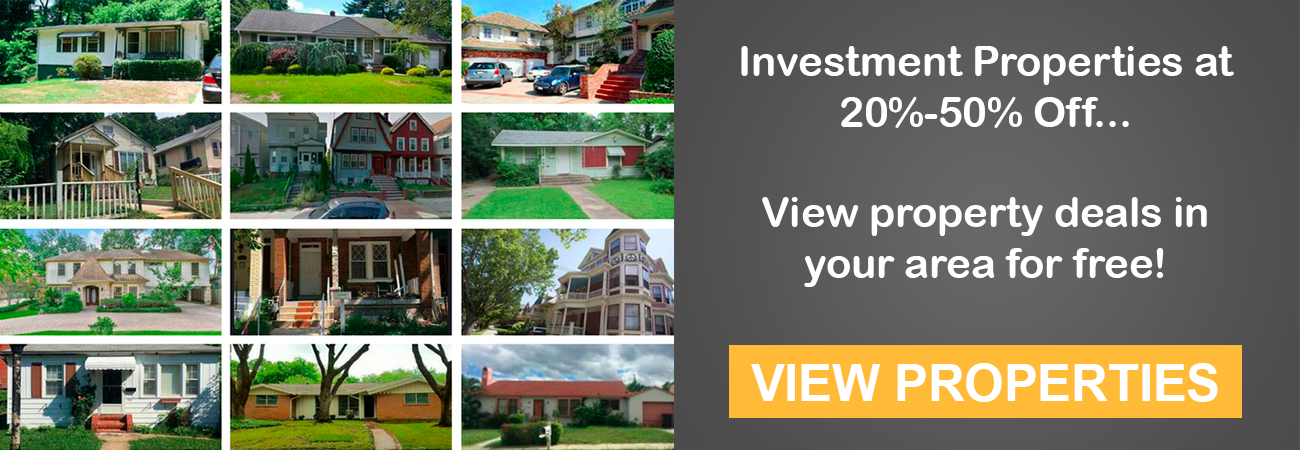
What do you look for when you look for a deal?
When looking for a deal, we consider the different types of funding we rely on. Sometimes we self fund. Self funding is when we deploy our own capital to take down a property and do a cash injection for the repairs, rehab, and forced depreciation that’s needed for that particular project. We also need to make sure we know what our exit strategy is going to be. It is absolutely key to nail the exit strategy first. It’s the reverse engineering approach. This is a term we use in IT.
You have to nail that exit strategy. If you know what the exit strategy is going to be, you simply reverse engineer that to say, “Okay, what’s my scope of work?” If my scope of work is going to be “x” amount of dollars, that backs you up to where this is where my acquisition price should be. Anything at or below that is just added equity for you.
What kind of properties were you looking for on MyHouseDeals?
On MyHouseDeals, we were looking for properties that fit our margins. We had to know how much money to deploy to fix up the house using a cash injection or using private money before we started work on this. With private money we could take the property down and provide the capital to repair it. We would get a small return on the proceeds.
Or we could use hard money and use the funds given to do the rehab and yield spread on the back that’s we were going to share. Knowing that if those two situations were to fall out and we had only one source to rely on for financing, then we had to know what our margins had to be. We also had to know the guidelines and the restrictions around what the hard money lender would allow.
In this case, it is traditionally between 60 to 75 percent of the ARV. As we were scouring the site, we happened to find such a project. Our sweet spot seems to be in the quarter million acquisition with a half a million dollar exit. This seems to be the type of playground we like the most. This particular project fell within those numbers. With a little bit of negotiating with the seller, we went MEC (Mutual Executed). We are still in that project today. We were looking for margins.
There were plenty of descriptions and pictures, so the MHD site provided the data that we needed. It wasn’t fictitious and there wasn’t any inflation. The seller was very credible and provided accurate information for us. This helped out our due diligence process. This is the first deal that we have ever pulled off of the site and it’s going to be one of our most successful ones. It is a very exciting opportunity to pluck more deals off the website.
Were you looking in a particular area or are you open to investing in any market?
We have properties all across the nation. We have a heavy presence in Florida right now since we don’t have to slow down depending on the seasons. In some of the Midwest states, investments slow down there because of the weather. If there’s a foot of snow outside in February, there is not going to be a whole lot of people who want to go out and buy properties.
The cold seasons affect places like Colorado and Midwest states in the mountain ranges much more than Florida. The Florida markets enjoy all year round sunny weather which makes it a convenient market to invest in.
As of now we have a heavy presence in Florida, but we invest in multiple markets. It’s just a matter of which market is going to be strong considering the economics and demographics. The investment strategy would either be a rehab or a portfolio hold, but we are also very keen at to what the economists tell us based on the real estate shift and the bubble that they have predicted, like how they predicted the last two market crashes.
We have a great relationship with them. They keep us aware of what the market is doing right now. They also tell us of any change or shift in strategies that we need to implement based on what the market is telling us. Right now, finding properties to invest in is a nation wide effort.
How did you verify that the ARV, the rehab, and the sales price were accurate?
I believe there is a profit realization figure on the site when you look at a property.
Say for example, I buy a property for $200,000 and do the rehab for $50K. When I sell if for $325,000, you get a $75,000 profit. Those are some initial numbers right off the bat that I can look at and think that if my exit is going to be $300K, then I have to buy this property at 70% threshold to fit into the funding criteria that I have available today.
If I take that 70% and come up with $210,000 and if it costs me $300,000 to fix, then I only have to do $180,000 for acquisition. And I might have to add or subtract for contingencies and what not. Now if I’m at $180,000, then I know I can get into that property with almost no money down and it would make a hard money lender smile because it’s an asset driven loan that a hard money lender will traditionally use when they are doing their calculations.
It is also going to be how much capital you need in order to deploy based on the liquidity of where we are at today. Those three numbers will initially give me a good idea right off the bat if our ARV is going to be “x.” There are a few thing we consider. First, we consider if it fits into the criteria of a quarter million dollar acquisition. Then we see if we have to do a yield spread of proceeds that the private lender will receive.
We have to consider if there is enough meat on the bone for us to take after all proceeds that have been distributed out. The figure of profit that is there will give you an idea. If I’m going to deploy $300K to only end up netting $20K, that is not a good margin. You can quickly do those calculation in your head and know the backend number. You can know what the matrix calculations are in order to get into the deal.
There is enough on the site initially to do some of those calculations in your head. You just have to know what those numbers are and what the key performance indicators are. There are all kinds of other things that affect the growth of your company based on the types of properties you’re taking down. Elements such as the cash you’re deploying, and the types of returns you’re making over “x” amount of time.
Once you know all that, then you can start scaling and growing the business. On MyHouseDeals, there was enough information for me to take a look at those figures because you have to have the money first. You have to have the financing aspect locked down first before you’re going to go out and buy a property.
There are investors out there today whose strategy is to flip property they buy from $100K to $150K, put $30K-$40K in it and then sell them for $200K to $250K. Our numbers just happen to be a little bit higher. We like to buy at a quarter million and exit at half a million. $100,000 or more in profit is a number that we target. If I see something on MyHouseDeals that is a $80,000 or $90,000 plus profit, I’m going to take a really good hard look at the deal and deploy some resources for some due diligence.
How many wholesales deals did you do before you started changing your strategy?
It was interesting because for my very first wholesale deal, it took me ninety minutes to sell once I had it locked up. Once I had it locked up, I walked through the property with the seller and I had tons of photos. By way of self study and research, I knew how to market the property afterwards and how to get it out to the buyer community. It took about an hour and a half before I got a few phone calls. One of them was the full price offer I was asking for.
When I found out who the buyer was, I saw that they were another wholesaler. I found out that the actual entity was a hedge fund. A few short weeks later, here I am with the acquisitions management of the hedge fund. We’re walking around various parts of Colorado looking at properties that I had identified as potential deals. I think I did eight wholesale deals within the first 60 days.
After doing the wholesaling, I realized that this is definitely something that could take off. But doing small wholesale deals here and there wasn’t something that appealed to me. The people I would sell the house to would just take the property and put some rehab into it. Then they would hold it long-term for cash flow. My thoughts were, “Let’s get a little bigger payday and let’s take one of these down ourselves and do the rehab and sell to open market.”
I don’t know how many deals I did. I do know that it happened very quickly, when we transitioned from wholesaling to rehab. You can do three or four wholesales and make $100,000 on each of those in a year. There are guys I know who have made a quarter million on one wholesale flip before and other people who made smaller amounts by doing 3-7 $10,000 deals. But if I had a choice between doing 40 wholesale deals a year or taking down $100,000 profit with a giant rehab, I would rather do the giant rehabs.
Give Me Some Advice…
What advice do you have for new investors?
For new investors, there is so much material they can read and there is so much information out there. Again, the problem solving piece can be taught and can be presented. Someone can teach this at the front of the room or on an audio tape or video. They are going to tell you all the steps you need to take to market and sell the property. One of the things that is missing is if the investor is going to lack the confidence. Another is if they know what to say on the phone once they start getting phone calls.
Anyone can do stuff like type in numbers, research property, and post photos. There’s a lot of stuff that anyone can do. However, what they don’t teach you is the poise and confidence you need. They don’t teach you the persona you need on the phone or how to overcome objections such as “Why am I giving away my $200,000 house for $100K?” It’s the interpersonal elements, the dealmaking, and negotiating that I think leaves a lot of people in the dark.
There are a few people out there who have those skill sets from a personality perspective. If you’re not built that way and you have a quiet, shy personality looking to get into real estate investing, it might be a little intimidating because they are not used to taking command and control of a phone call and educating people on the costs and criteria as to why their home may not sell for $200K. All of the different objections is what gives new investors the greatest fear when talking to homeowners. So what do they do? They hire a sales professional when they get the money to hire one.
Most real estate investor start wholesaling first, then they get into rehab later. After that, you get into multi-family and commercial buildings as you keep scaling up. When you first start out, you don’t really know who you’re going to make your phone calls to and what you are going to say to these people. Depending on the mentor you have, they can teach you how to deal with the intricacies in dealing with the biggest fear: interacting with sellers on a one-on-one basis.
The other minutia of deal making, such as keyboard crunching and putting pictures online, is all pretty easy stuff. It’s getting the deal under contract by using interpersonal communication skills. That has to happen for you to be able to tie up those deals. You are going to get properties from various sources such as foreclosures, auctions, and divorced couples. The biggest fear new investors have is how they will take their next step forward using the interpersonal interaction. Interpersonal interaction takes place between the sales people, project managers, their CFO, and all types of people they end up working with.
Any other advice you want to add?
Along with the reverse engineering, a lot of new investors come out of the gate and they say that they have read plenty of books on the subject of investing and that they want to jump right in. They jump in with a goal of making $100K within 12 months, but people don’t know how to get to that $100K.
People don’t understand that there is an actual formula out there that you can plug in. Some of the nuances of the granularity of that formula may or may not be appropriate. However, it’s a matter of reverse engineering to where if I know I have to make a $100K, then I’m basically going to be making about $8,000 per month. How many wholesale deals will make me $8,000 per month?
Let’s say I do a couple of wholesale deals for $4,000 each. Now if I’m getting two wholesale deals, it means I go under contract and I close the deals with a buyer. I make my wholesale fee for those two properties all within the 30 day period. Now you have to consider how many offers you put on numerous properties in order to get two of those to go under contract and close.
If I have to make “x” amount of offers I need to know how many properties I should be looking at on a regular basis in order for me to say, “Ah, here’s 20 properties that I would like to make offers on.” Knowing that if your ratios are holding true, two of those are going to close for $4,000 each and you will meet your goal of $8,000 per month.
If I’m doing this five days a week every week, then I have to look at 10 properties a day. I have to spend close to $250 per month on marketing. Then I look at 200 properties for the month in order to make offers on 20. Then I get two contracts, close two, and make $8K a month.
I do this all over again in the next months and make it to my $100K for the year. You can break it all down into the steps you need to take. Just make sure you know what your metrics and key performance indicators are. You can start getting granular to where you know how much that lead is going to cost. You will know how much time to vet in order to do due diligence on a specific piece of property. Always remember that there is a formula out there that you can plug into your business.
What is the next big goal you want to accomplish?
I think at this point, we will probably scale to doing at least 20 to 50 rehabs per month. Our portfolio will probably be between 500 to 1,000 homes. We will be rehabbing multi-family, commercial, and other property types. Really we just want to build an empire. The sky’s the limit at this point based on our goals and the direction the company is going.


